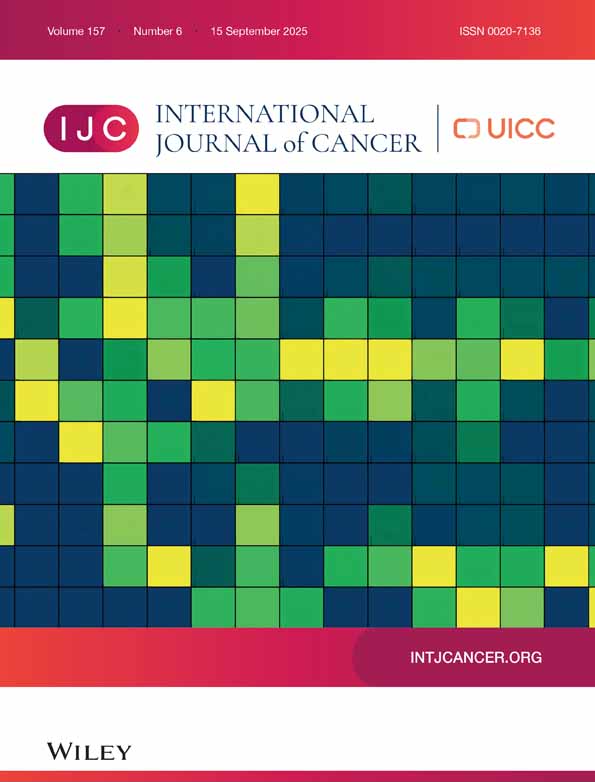Overexpression of the proto-oncogene/translation factor 4E in breast-carcinoma cell lines
Abstract
The expression of the proto-oncogene, translation factor elF-4E, was examined in breast-cell lines: 5 carcinomas and 2 normal. At the protein level, elF-4E was 10 times higher in the carcinoma lines than in normal cells, which is comparable to the level found in breast-cancer biopsies. The elevation appears to be due to increased transcription, since the elF-4E mRNA was correspondingly increased. These results demonstrate that cells isolated from naturally occurring breast carcinomas maintain an elevated expression of the factor. Turnover rates for elF-4E (mRNA and protein) were determined for normal and cancer cells. We found that elF-4E mRNA is relatively stable during an 8-hr incubation with Actinomycin D, but the half-life of the protein is fairly short (≈4.5 hr). This suggests that, in proliferating cells, elF-4E may be turning over rapidly, possibly to fine-tune the changes in translation rates which occur during the cell cycle. © 1996 Wiley-Liss, Inc.




